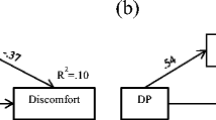Abstract
This paper examines levels of similarity in ethical outlooks in countries where economic and sociocultural values may differ markedly. We compared students from a capitalist country, the United States, with students from Ukraine, a country experiencing dramatic ideological confusion and economic change. We tested the hypothesis that greater social and moral integration, as operationalized by a lack of alienation and by religiousness, will directly affect one's willingness to engage in unethical business practices.
The sample was composed of business students in both Ukraine and the United States. The survey instrument consisted of widely used scales for measuring alienation and religiousness. The measure of ethical standards was a vignette-based quasi-projective technique.
Results showed that, for the sample as a whole, willingness to engage in unethical business behavior was related to higher levels of alienation and lower levels of religiousness. The Ukrainians were also much more willing to engage in unethical behavior than were the Americans. The explanation for this difference is unclear, however. For the Ukrainians, religiousness and alienation did not explain the patterns in unethical behavior, and relationships were very weak for the Americans. There may be some unmeasured factor, such as economic exigency, that is influencing the results. It simply may be that people choose to behave more ethically when they have the luxury to do so.
Similar content being viewed by others
References
Abratt, R., D. Nel and N. S. Higgs: 1992, ‘An Examination of the Ethical Beliefs of Managers Using Selected Scenarios in a Cross-cultural Environment’, Journal of Business Ethics 11, 29–35.
Alexander, C. S. and H. J. Becker: 1978, ‘The Use of Vignettes in Survey Research’, Public Opinion Quarterly 42, 93–104.
Beltramini, R F., R. A. Peterson and G. Kozmetsky: 1984, ‘Concerns of College Students Regarding Business Ethics’, Journal of Business Ethics 3, 195–200.
Bommer, M., C. Gratto, J. Gravander and M. Tuttle: 1987, ‘A Behavioral Model of Ethical and Unethical Decision Making’, Journal of Business Ethics 6, 265–280.
The Connecticut Mutual Life Report on American Values in the 80's: The Impact of Belief. 1981.
Donahue, M. J.: ‘Intrinsic and Extrinsic Religiousness: Review and Meta-Analysis’, Journal of Personality and Social Psychology 48(2), 400–419.
Durkheim, E.: 1897, Suicide, Reprint, 1966 (Free Press New York).
Fritzsche, D. J. and H. Becker: 1984, ‘Linking Management Behavior to Ethical Philosophy — An Empirical Investigation’, Academy of Management Journal 27(1), 166–175.
Gorsuch, R. L. and S. E. McPherson: 1989, ‘Intrinsic/Extrinsic Measurement: I/E Revised and Single-Item Scales’, Journal for the Scientific Study of Religion 28, 348–354.
Harris, J. R.: 1989, ‘Ethical Values and Decision Processes of Male and Female Business Students’, Journal of Education for Business (Feb.), 234–236.
Harris, J. R.: 1990, ‘Ethical Values of Individuals at Different Levels in the Organizational Hierarchy of a Single Firm’, Journal of Business Ethics 9, 741–750.
Huffman, T. E.: 1988, ‘In the World but not of the World: Religiosity, Alienation, and Philosophy of Human Nature Among Bible College and Liberal Arts College Students’, Unpublished doctoral dissertation, Iowa State University.
Izraeli, D.: 1988, ‘Ethical Beliefs and Behavior of Managers — A Cross-Cultural Perspective’, Journal of Business Ethics 7, 263–271.
Jones, T. M. and F. H. Gautschi III: 1988, ‘Will the Ethics of Business Change?’, Journal of Business Ethics 7, 231–248.
Kidwell, J. M., R. E. Stevens and A. L. Bethke: 1987, ‘Differences in Ethical Perceptions Between Male and Female Managers: Myth or Reality?’ Journal of Business Ethics 6, 489–493.
Laczniak, G. R. and J. Naor: 1985, ‘Global Ethics: Wrestling with the Corporate Conscience’, Business (July–Sept.), 3–10.
Lee, K. H.: 1981, ‘Ethical Beliefs in Marketing Management: A Cross Cultural Study’, European Journal of Marketing 15, 58–67.
Lysonski, S. and W. Gaidis: 1991, ‘A Cross-Cultural Comparison of the Ethics of Business Students’, Journal of Business Ethics 10, 141–150.
Matin, J. and S. Stack: 1983, ‘The Effect of Religiosity on Alienation: A Multivariate Analysis of Normlessnes’, Sociological Focus 16 (1), 65–76.
Martinson, O. B., E. A. Wilkening and F. H. Buttel: 1982, ‘Religion and Community Oriented Attitudes’, Journal for the Scientific Study of Religion 21, 48–58.
Nunnally, J. C.: 1978, Psychometric Theory, second ed., McGraw-Hill, Inc.
Posner, B. Z. and W. H. Schmidt: 1984, ‘Values and the American Manager: An Update’, California Management Review 26(3), 202–216.
Prasad, J. and C. P. Rao: 1983, ‘Foreign Payoffs and International Business Ethics: Revisited’, Southern Marketing Association Proceedings, 260–264.
Rettig, S. and H. E. Rawson: 1963, ‘The Risk Hypothesis in Predictive Judgments of Unethical Behavior’, Journal of Abnormal and Social Psychology 66(3), 243–248.
Robinson, J. P. and P. R. Shaver:; 1973, Measures of Social Psychological Attitudes (Institute for Social Research, Revised Ed. Ann Arbor, MI).
Silk, L. and D. Vogel: 1976, Ethics and Profits: The Crisis of Confidence in American Business (Simon and Schuster, New York).
Stassen, G.: 1977, ‘A Social Theory Model for Religious Social Ethics’, Journal of Religious Ethics 5(1), 9–37.
Tsalikis, J. and D. J. Fritzsche: 1989, ‘Business Ethics: A Literature Review with a Focus on Marketing Ethics’, Journal of Business Ethics 8, 695–743.
Tsalikis, J. and O. Nwachukwu: 1988, ‘Cross-Cultural Business Ethics: Ethical Beliefs. Differences Between Blacks and Whites’, Journal of Business Ethics 7, 745–754.
Tsalikis, J. and O. Nwachukwu: 1989, ‘Cross-Culture Marketing Ethics: An Investigation on the Ethical Beliefs & Differences Between Greeks and Americans’, Journal of International Consumer Marketing 1(3).
Author information
Authors and Affiliations
Additional information
Dr. Ellen Kennedy and Dr. Leigh Lawton are Professors in the Department of Marketing at the University of St. Thomas. They have published several articles together in the Journal of Business Ethics and in Industrial Marketing Management. Most of their research deals with cross-cultural ethics.
Rights and permissions
About this article
Cite this article
Kennedy, E.J., Lawton, L. The effects of social and moral integration on ethical standards: A comparison of American and Ukrainian business students. J Bus Ethics 15, 901–911 (1996). https://doi.org/10.1007/BF00381858
Issue Date:
DOI: https://doi.org/10.1007/BF00381858




